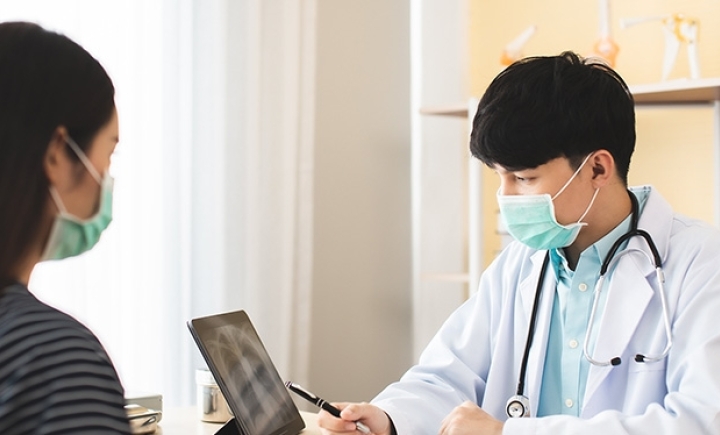Snoring and Sleep Apnea

Sleep Apnea
Do you often fall asleep while watching TV, reading, attending meetings, or even driving?
Has your family ever complained about your loud snoring keeping them awake?
If you frequently feel sleepy during the day and have serious snoring problems, you may be suffering from sleep apnea.
Snoring occurs when the soft tissues in the upper airway relax during sleep, narrowing the passage and causing vibration as air flows through—producing the snoring sound.
The louder the snore, the greater the obstruction.
When the airway becomes completely blocked, breathing stops temporarily—this is sleep apnea.
Although most people with sleep apnea snore heavily, not all people who snore have sleep apnea.
Why Does Sleep Apnea Occur?
Sleep apnea has become increasingly common in Hong Kong.
It is estimated that about 4% of men and 2% of women are affected.
Patients experience repeated pauses in breathing lasting 10 seconds or more while asleep.
Mild cases may have several pauses per hour, while severe cases may experience 20–30 pauses per hour, sometimes over 100 episodes per night.
There are three main types of sleep apnea:
-
Obstructive Sleep Apnea (OSA) – the most common form.
-
Usually affects middle-aged men aged 30–60.
-
Caused mainly by obesity, which leads to fat accumulation around the upper airway, narrowing it and obstructing airflow.
-
Slim individuals can also develop OSA due to congenital factors, such as:
-
Small or recessed jaw
-
Elongated uvula
-
Narrow airway
-
Enlarged tongue
-
-
-
Central Sleep Apnea (CSA) – less common and caused by the brain’s failure to send proper breathing signals.
It can result from a stroke, heart disease, or certain medications. -
Mixed Sleep Apnea – a combination of both obstructive and central apnea.
What Are the Risks of Sleep Apnea?
-
Loud snoring can disturb family members’ sleep.
-
Patients often wake up unknowingly many times during the night, preventing deep restorative sleep.
-
This causes daytime sleepiness, fatigue, poor concentration, and a higher risk of accidents—especially when operating machinery or driving.
-
Repeated oxygen deprivation during sleep can cause long-term heart and lung damage, increasing the risk of high blood pressure, stroke, and heart disease, and in severe cases, may even lead to sudden death during sleep.
Sleep Self-Test – Epworth Sleepiness Scale
What Are the Symptoms of Sleep Apnea?
-
Loud, intermittent snoring that pauses briefly, followed by louder snoring.
-
Repeated breathing interruptions during sleep (from several times to dozens of times per hour).
-
Breathing through the mouth while sleeping.
-
Waking suddenly with shortness of breath or rapid heartbeat.
-
Morning headaches.
-
Daytime fatigue, sleepiness, poor concentration, and slower reactions.
-
Memory decline.
-
Irritability or mood swings.
-
Decreased sexual function.
How to Diagnosis Sleep Apnea?
A sleep study (polysomnography) can be arranged at a hospital to record and analyze your sleep patterns.
Medical professionals use specialized instruments to determine whether you have sleep apnea and recommend suitable treatment.
How to Cure Obstructive Sleep Apnea?
-
Continuous Positive Airway Pressure (CPAP)
Currently the safest and most effective treatment for mild to severe cases (prescribed by a doctor).
The CPAP machine sends pressurized air through a nasal mask to keep the airway open during sleep.
While it does not cure sleep apnea, long-term use significantly reduces episodes and improves sleep quality. -
Oral Appliance (Mouth Guard)
Suitable for mild cases.
A custom-made dental device worn during sleep pulls the lower jaw forward to reduce airway obstruction.
Works best for patients with healthy teeth and jawbone. -
Surgery
Options include jaw correction surgery or radiofrequency ablation, suitable for patients who cannot tolerate CPAP.
However, the average success rate is about 50%, as some patients have multiple blockage points that surgery cannot fully remove. -
Weight Reduction
Losing excess body fat can significantly improve symptoms. -
Sleeping on One’s Side
May help in mild cases. -
Quit Smoking and Reduce Alcohol or Sedative Use
Tobacco causes swelling in the oral mucosa, while alcohol and sedatives relax muscles, worsening airway blockage.
This content is for informational reference only and does not replace professional medical diagnosis or treatment.
If you experience symptoms of sleep apnea, please consult a doctor for evaluation and advice.




